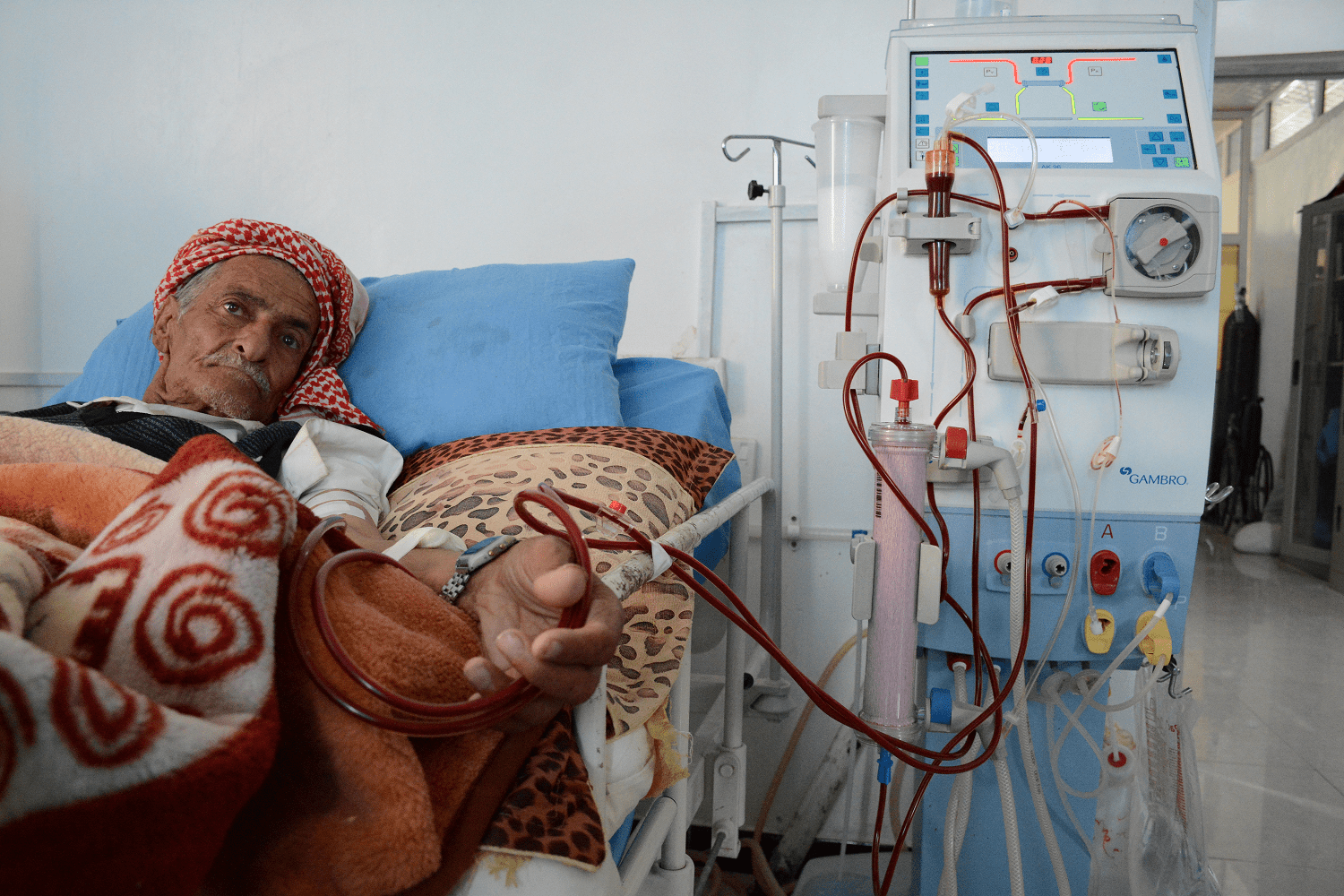NEW YORK/SANA’A, FEBRUARY 8, 2018—The lives of thousands of renal failure patients are in danger as kidney treatment centers in war-ravaged Yemen close or struggle to function, said the international medical humanitarian organization Doctors Without Borders/Medecins Sans Frontieres (MSF) Thursday.
Since the start of the conflict three years ago, four of Yemen’s 32 kidney treatment centers have been forced to close. The remainder are running out of essential supplies, hindering their ability to provide patients with uninterrupted treatment. Patients, meanwhile, struggle to travel to still-functioning centers, as well as to pay for treatment.
“Most patients with renal failure generally don’t have the physical strength or money to travel for treatment,” said Djoen Besselink, MSF head of mission in Yemen. “Even if they can reach a center that is still functioning, they may not be able to afford the treatment. A significant number of dialysis patients are government employees who haven’t received their salaries for over 18 months. Their chance of receiving this lifesaving medical care is slim.”
Patients with renal failure are dependent on machines to clean their blood, a function normally carried out by the kidneys. Such patients usually attend dialysis sessions three times per week. Across Yemen, many people have been forced to limit their sessions to two per week, leading to increased medical side effects, a decreased quality of life, and potentially death.
Mukbil, 35, who has kidney failure, has been living in a hospital parking garage for months to cut down on travel costs. “I don’t have the money for transport from my home to the hospital for each session, so I decided to stay in the parking lot,” he said.
Saber, 24, can only afford dialysis because his mother-in-law sold all her jewelry to fund his continued treatment. “The sickness is bringing me to the ground and my loved ones are suffering,” he said.
“The situation for renal failure patients is just one example of the consequences of war on the Yemeni people,” Besselink said. “Medicines and supplies are running low, health workers have not been paid for 18 months, hospitals are struggling to function, and many have been hit by airstrikes or shelling and forced to close—MSF facilities included. The medical needs are huge and the situation is dire.”
Over the past two years, MSF has imported more than 800 tons of dialysis supplies and provided more than 83,000 dialysis sessions for some 800 patients, free of charge. However, MSF is unable to cover the enormous needs in the country and is calling on other organizations to step up their medical response on this issue and help the more than 4,400 renal failure patients who are in urgent need of care.
MSF teams currently work in 11 Yemeni governorates and support more than 23 health facilities.
Yemen: Conflict Puts Renal Failure Patients’ Lives at Risk

YEMAN 2018 © Malak Shaher/MSF



